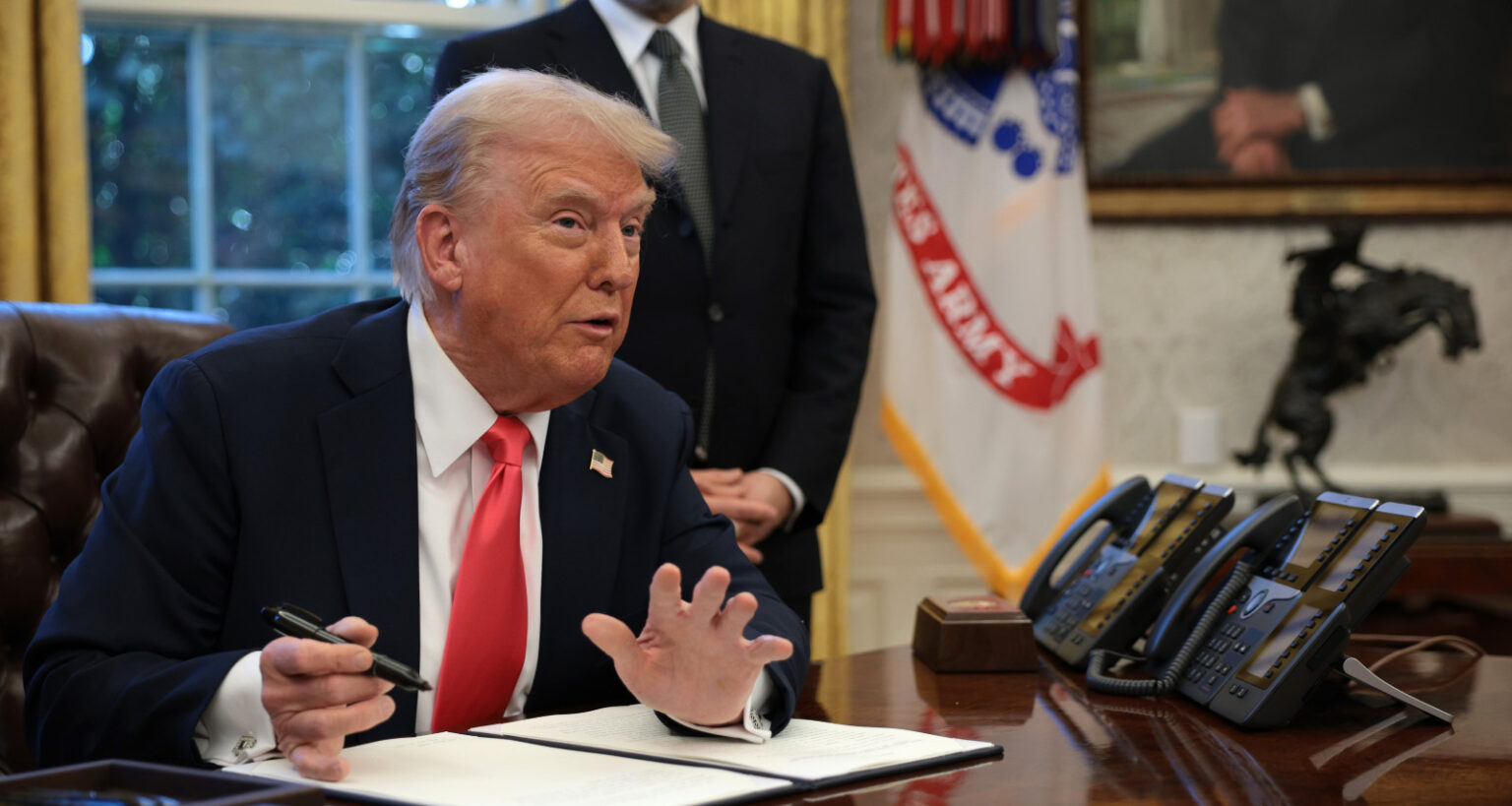President Donald Trump on Thursday called on the U.S. Supreme Court to intervene against what he described as “rogue” federal judges who are obstructing his administration’s immigration policies. Trump’s remarks come amid escalating legal battles over his use of the Alien Enemies Act of 1798, which has faced repeated challenges from lower courts.
“Unlawful Nationwide Injunctions by Radical Left Judges could very well lead to the destruction of our Country!” Trump wrote on Truth Social. “These people are Lunatics, who do not care, even a little bit, about the repercussions from their very dangerous and incorrect Decisions and Rulings.”
Trump criticized the legal tactics used by his opponents, arguing that activist lawyers are strategically filing lawsuits in jurisdictions with left-leaning judges to derail his administration’s efforts to deport criminal aliens with ties to foreign terrorist organizations.
White House Slams Judge’s Ruling Blocking Alien Enemies Act
The White House is particularly frustrated with a recent ruling from U.S. District Judge James Boasberg, who issued a 14-day restraining order preventing the Trump administration from invoking the Alien Enemies Act to deport violent illegal aliens. This law, first enacted in 1798, grants the president broad authority to remove foreign nationals deemed threats to national security, and Trump’s legal team argues that its enforcement is beyond the jurisdiction of lower courts.
Senior White House advisor Stephen Miller reaffirmed that previous Supreme Court decisions have already deemed the president’s powers under the act “non-justiciable”, meaning they are not subject to judicial review by lower courts. However, Boasberg—a judge appointed by former President Barack Obama—has challenged this interpretation, asserting that Trump does not have unilateral authority to enforce the act.
Trump: ‘Judges Are Overstepping Presidential Authority’
Trump accused activist judges like Boasberg of overstepping their constitutional authority by interfering with executive decisions on immigration and national security. He specifically condemned Boasberg’s move to block deportation flights, which were set to remove MS-13 gang members, Tren de Aragua criminals, and other violent offenders from U.S. soil.
“It is then the obligation of Law-abiding Agencies of Government to have these ‘Orders’ overturned. The danger is unparalleled!” Trump stated.
The former president warned that such judicial interference is creating a dangerous precedent where unelected federal judges could block policies that are essential to maintaining law and order.
Trump Calls for Immediate Supreme Court Action
In his post, Trump directly urged Chief Justice John Roberts and the U.S. Supreme Court to act swiftly to rein in lower courts issuing nationwide injunctions against executive orders.
“If Justice Roberts and the United States Supreme Court do not fix this toxic and unprecedented situation IMMEDIATELY, our Country is in very serious trouble!”
Trump argued that a president must be able to act quickly to remove individuals who pose a threat to American citizens, emphasizing the urgency of returning criminals, drug lords, and rapists to their home countries.
“A President has to be allowed to act quickly and decisively about such matters as returning murderers, drug lords, rapists, and other such criminals back to their Homeland, or to other locations that will allow our Country to be SAFE.”
Nationwide Injunctions: A Growing Legal Controversy
The issue of nationwide injunctions—where a single federal judge can block a presidential order from taking effect nationwide—has been a major legal battleground throughout Trump’s presidency. Conservative legal scholars argue that these injunctions unfairly empower individual judges to set policy, while liberal advocates claim they are a necessary check on executive overreach.
Trump and his supporters maintain that these rulings threaten the separation of powers and cripple the executive branch’s ability to enforce immigration law. The Trump administration has already appealed Boasberg’s ruling, and the case may ultimately be decided by the Supreme Court.
Conclusion: Will the Supreme Court Step In?
With Trump’s 2024 campaign gaining momentum, his battle against judicial overreach is expected to remain a central theme of his platform. Whether the Supreme Court will intervene in the Boasberg case—or address the broader issue of nationwide injunctions—remains to be seen.
For now, Trump continues to rally support for his immigration policies, urging the judicial system to respect the constitutional powers of the presidency. The next legal showdown over executive authority and immigration policy could have major implications for the future of presidential power in the United States.
